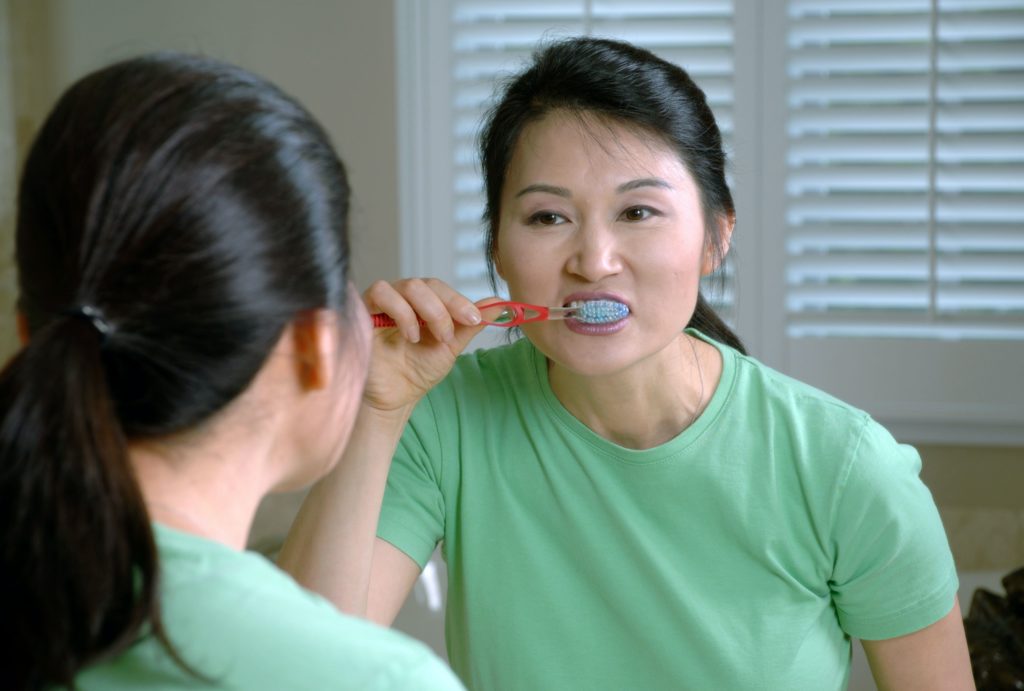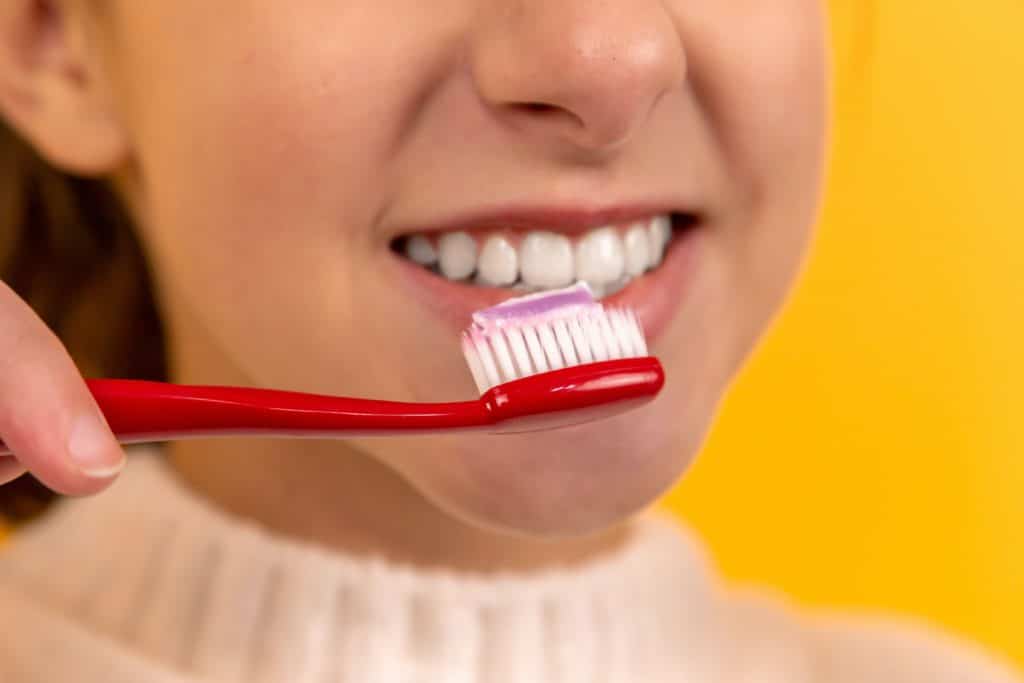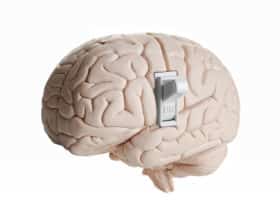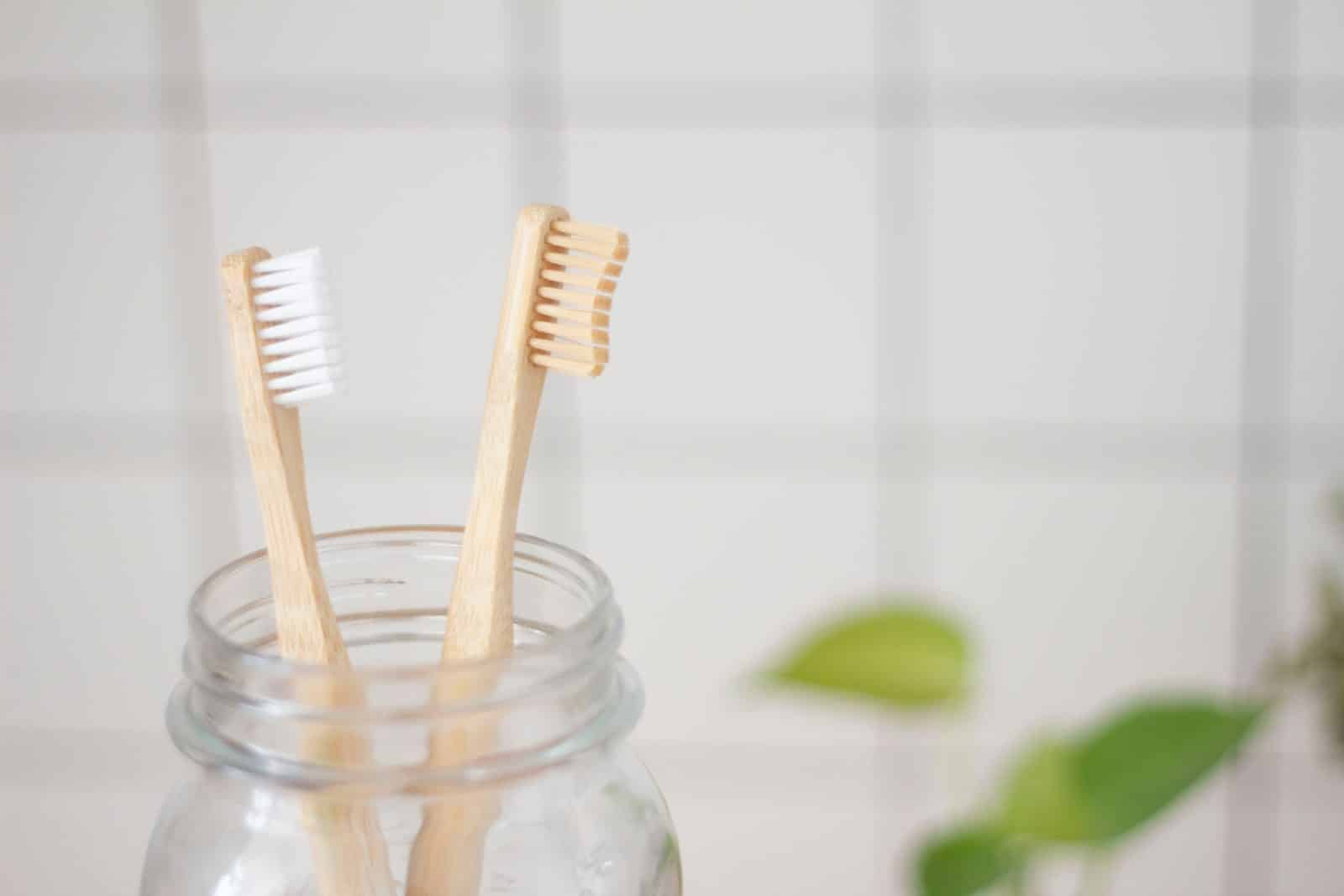We’ve all had those days when we can’t find the time for everything. From waking up early to finish that presentation, walking your dog around the block, or even just making it home from work on time — getting tasks done quickly is a must to make our lives flow more smoothly. So what about when it comes to basic hygiene? Could it be possible that a straightforward task could get streamlined too? Many people have asked if brushing teeth in the shower is safe and feasible, and some say “yes”!

But before you try this inventive method of cleaning your pearly whites, let’s dive into what experts are saying and find out whether showering with your toothbrush is safe…or gross!
Is Brushing Teeth In The Shower Safe?
Brushing your teeth in the shower can be considered safe, but there are a few potential concerns. While it may be convenient for those who are short on time or like multitasking, it’s not necessarily the best option for your oral health. The steam from the shower can potentially soften your toothbrush bristles, making them less effective at removing plaque and bacteria from your teeth and gums.
Brushing your teeth in the shower is a smart, time-efficient way to take care of your oral hygiene and multitask. According to tweet data, 44.9% of people find this practice to be convenient and acceptable, while 55.1% disagree and consider it to be unimaginably gross. Ultimately, it is up to the individual as everyone has their own opinion on this matter.
Standing in a hot shower for an extended period can cause dehydration, leading to a dry mouth. This is problematic because saliva helps keep bacteria levels in the mouth low. The combination of hot water and high humidity can make toothpaste foam faster than when brushing outside the shower and could increase the risk of swallowing it. Before brushing your teeth in the shower, these factors should be considered as part of a regular hygiene routine.
On the other side, some people make fun of this brushing habit…!
How to Brush Your Teeth In Shower [Steps]
Brushing your teeth in the shower is an easy and effective way to keep your mouth healthy and clean. It is essential to use the proper techniques to ensure that you are brushing effectively and safely.

Here are some steps for brushing your teeth in the shower:
Prepare: Before you start, ensure that you have a toothbrush, toothpaste, and a cup of water or a squeegee handy. It’s also helpful to have a few minutes alone in the shower for optimal concentration.
Wet Your Toothbrush: Run your toothbrush under the water for several seconds until it is thoroughly wet. You can also fill a cup with water and dip the toothbrush if preferred.
Apply Toothpaste: Squeeze a pea-sized amount of toothpaste onto the bristles of your wet toothbrush. Make sure not to use too much toothpaste as this can cause more mess later on when cleaning up!
Brush Your Teeth:
- Start brushing your teeth as you normally would, focusing on each quadrant of your mouth for about 30 seconds.
- Brush both the front and back surfaces of each tooth and their tops.
- Use gentle circular motions when brushing your gums so they don’t become irritated.
Rinse Your Mouth and Toothbrush: Spit out any remaining suds into the drain before rinsing your mouth with water from a cup or faucet. Then rinse your toothbrush with running water from the shower head before patting it dry with a towel if desired.
Finish With Mouthwash: At this stage, you want to finish up with a suitable mouthwash rinse for extra freshness and effective plaque removal. Make sure that whatever type of mouthwash you use is safe for daily use – some varieties may irritate over time if used too often, so always read labels carefully before purchasing one!
Clean Up: Use a squeegee or cloth to wipe down any walls where there may be splatters from excessive suds. This will help prevent buildup or staining from leftover residue from toothpaste or other products used during showering sessions!
More: How to Manage Your Seething Anger Productively [5 Ways]
Pros of Brushing Teeth in the Shower
There are several advantages to brushing your teeth in the shower, such as:
Time Efficiency
You are brushing your teeth while in the shower is a more time-efficient way of taking care of your oral hygiene. It eliminates the need to step out of the shower, dry off, and finish brushing your teeth before getting dressed. With this method, you can brush your teeth simultaneously as you are showering, thus saving precious minutes in the morning or evening.
Less Mess
You can avoid making a mess on the bathroom floor or countertop from toothpaste droplets by brushing your teeth while in the shower. This also makes it easier to clean up since there is no need to wipe down any surfaces to get rid of residue from toothpaste. It reduces water waste caused by running two separate processes – showering and brushing your teeth – simultaneously.
Convenience
Showering and brushing your teeth at once is incredibly convenient for busy people with limited time for personal hygiene routines. This helps ensure all aspects of one’s hygiene are taken care of in a timely fashion without sacrificing anything else. It reduces clutter within the bathroom by allowing one item – like an electric toothbrush – to serve two purposes.
Eliminates Bacteria
When brushing one’s teeth outside of the shower or standing over a sink, tiny particles from our saliva mix with bacteria from around us to create an environment where bacteria can thrive and spread throughout our home or workplace. When we brush our teeth inside the box enclosure made by shower walls, we eliminate these bacteria since they do not have access to us or our belongings. This helps minimize potential exposure to harmful airborne pathogens, which could harm our health.
Cons of Brushing Teeth in the Shower
There are also a few drawbacks to brushing your teeth in the shower, such as:
Unfavorable Environment
One of the primary disadvantages of brushing teeth in the shower is that it requires using a bathroom environment that may need to be more conducive to proper oral hygiene. Many bathrooms’ hot and humid conditions can cause toothpaste to dry out quickly, reducing its effectiveness. These same hot and humid conditions can foster the growth of bacteria and other microbes that can cause bad breath and other oral health concerns.
Inconvenient Equipment
The type of equipment needed for brushing teeth in the shower is often different than what’s typically used outside the shower. This can include a portable sink or basin connected to your showerhead or a cup-like container to hold water. These items can take up valuable space in a small bathroom, making them inconvenient for people who need more storage space or want to keep their bathrooms open and uncluttered.
Safety Concerns
Standing on wet surfaces while holding an electrical device, such as an electric toothbrush, presents certain safety risks. Extra care must be taken to avoid slipping and falling while reaching areas between your teeth with your brush. If you are using an electric toothbrush, you need to make sure it is scorched before recharging it after use, or else you risk causing damage to both the device and yourself.
Messy Cleanup
Finally, one more potential disadvantage of brushing your teeth in the shower is dealing with the mess afterward. This includes cleaning up any excess water splashed onto surrounding surfaces and any suds from toothpaste that may have gotten onto walls or floors during use.
More: CellRevealer Review: Performing Reverse Phone Lookups on Cellphones [2023]
Recommendations for Safe & Hygienic Practices
When it comes to brushing your teeth safely and hygienically, there are some steps you should follow:

- Make sure to brush your teeth at least twice a day—ideally after every meal—using a soft-bristled toothbrush and fluoride toothpaste in order to protect against plaque buildup.
- Store your toothbrush in an upright position so that air can circulate around it and help reduce bacterial growth; make sure to replace your toothbrush every three months or sooner if needed.
- Avoid sharing your toothbrush with anyone else and make sure you rinse it thoroughly with tap water before use each time.
Doing these things will help ensure that you maintain healthy oral hygiene without putting yourself at risk for any potential hazards such as water splashing onto the bristles of your brush or bathroom humidity increasing due to a running shower.
Final Thoughts
Brushing your teeth in the shower can be a safe and convenient way to maintain good oral hygiene, but extra care should still be taken when doing so. Make sure that you are using the right equipment, following safety protocols, and cleaning up after yourself to avoid any mess or hazards.
By following these tips, you can be sure that your oral health is in tip-top shape! Brushing your teeth in the shower can be a great way to cut down on time and make the morning routine go more quickly–just remember to practice good hygiene while doing so. So long as you take the necessary precautions, there’s no reason why you can’t enjoy the convenience of brushing your teeth in the shower.
With just a few simple steps, you can be sure that your oral health will benefit.















